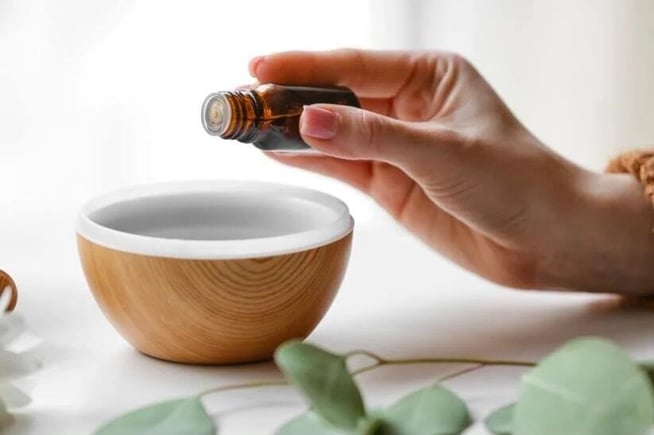Candles have long been loved for their ability to create a cozy atmosphere, offer soothing light, and fill a room with pleasant fragrances. However, while they enhance our living spaces, they may also pose hidden health risks. Volatile Organic Compounds (VOCs) emitted from many candles can potentially harm indoor air quality and our health. This blog will cover the risks associated with VOCs from candles and explore safer alternatives to keep your home smelling fresh and inviting.
Understanding VOCs and Their Sources
Volatile organic compounds, or VOCs, are chemicals that easily become vapors or gases at room temperature. Many household products, including candles, can emit VOCs and negatively impact your indoor air quality. In candles, VOCs can originate from the wax, fragrance, and wicks. Common VOCs released by burning candles include benzene, toluene, formaldehyde, and acetaldehyde, which are linked to various health issues.

Health risks associated with VOCs from candles
VOCs from candles may cause or exacerbate several kinds of health issues, including the following:
- Respiratory issues: Inhaling VOCs can irritate the respiratory tract and worsen conditions like asthma and allergies.
- Headaches and dizziness: Exposure to certain VOCs, such as toluene and benzene, can cause headaches, dizziness, and nausea.
- Long-term health effects: Prolonged exposure to some VOCs, like formaldehyde, has been linked to more serious health problems, including cancer.
- Indoor air pollution: Candles, especially those made from paraffin wax, can release soot and particulates, contributing to indoor air pollution.
Safer Alternatives to Traditional Scented Candles
Fortunately, there are several healthier alternatives to scented candles that can help keep your home smelling pleasant without compromising indoor air quality.
Soy and beeswax candles
Unlike paraffin candles, soy and beeswax candles are made from natural, renewable resources and generally produce fewer harmful emissions. Look for candles that are fragrance-free or use natural essential oils for scent.
Essential oil diffusers
Diffusers use water and essential oils to disperse fragrance into the air, providing a natural and customizable way to scent your home. They do not produce harmful byproducts like soot or VOCs. There are many options for essential oil scents such as orange, peppermint, clove, lavender, and more.
Natural air fresheners
Create your own air fresheners using ingredients like baking soda, citrus peels, herbs, and essential oils. These DIY solutions are not only safe but also cost-effective.
Houseplants
Certain houseplants, such as lavender, jasmine, and rosemary, can naturally freshen the air and even help filter out pollutants, enhancing indoor air quality.

Potpourri
Homemade potpourri made from dried flowers, herbs, and spices can add a pleasant fragrance to your home. Simmering a pot of water with cinnamon sticks, cloves, and citrus slices is another simple way to release a delightful aroma.
Ventilation
Ensuring proper ventilation in your home can help reduce the concentration of indoor pollutants. Open windows and use exhaust fans to improve air circulation and bring in fresh air.
Tips for Choosing Safer Candles
If you still prefer the ambiance of candles, consider the following tips to minimize potential harm:
- Choose natural wax: Opt for candles made from soy, beeswax, or coconut wax.
- Check ingredients: Avoid candles with synthetic fragrances and look for those scented with natural essential oils.
- Use proper wicks: Select candles with cotton or wood wicks instead of those with metal cores, which can release heavy metals when burned.
- Trim the wick: Always trim the wick to about 1/4 inch before lighting to reduce soot production.
- Burn in well-ventilated areas: Ensure the room is well-ventilated while burning candles to help disperse any pollutants.
By making informed choices about the products we use to scent our homes, we can enjoy a fresh-smelling space without compromising our IAQ and health. Embracing natural alternatives and safer candles can lead to a healthier and more pleasant living environment for you and your loved ones.
If you live in the Delaware Valley/Greater Philadelphia area and would like to find comfort within your home, visit our website or give us a call at 215 - 245 - 3200 to learn more.




